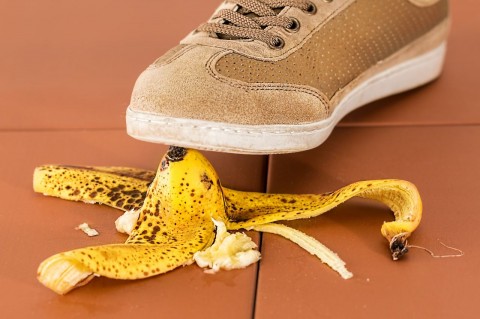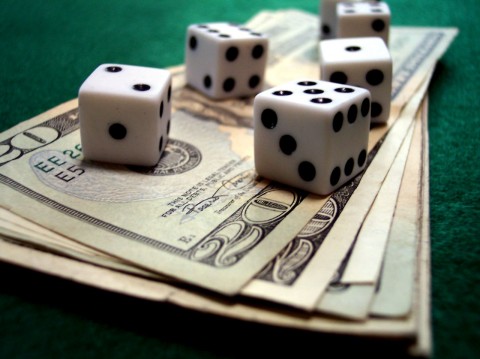Trading Educators Blog
If you make mistakes during trading, go back in your mind to see what you could have done better, or differently. There is usually something to learn from each trade. For example, did you stay too long in a single trade? Did you trade too aggressively, or not aggressively enough? Should you have cashed in (or added) some contracts, but didn’t? Mistakes don’t matter much if you learn from them. Ana...
After writing about why good trading usually is quite boring last week, I’ll continue down that road today and write about another similar topic. And again it’s more of a rant that many of you maybe don’t want to read about. But I believe it really can be an eye-opener to those of you who’re really serious about trading and these are the traders that I care for the most. Actually I wish I ha...
The world's most successful traders believe in themselves and their ability to win. In fact, many of them feel that they “own” the market. They are not necessarily being arrogant, but they are sure of themselves and that they are able to take profits out of the market. Most important is they believe that they deserve to win. They have a mind-set that is conducive to winning as a trader. It's essen...
When you start out trading, it’s pretty much all about the excitement. You watch every trade tick by tick, gazing at a chart ticking up and down together your P&L. You’re long. When it goes up, you feel excited because you’re making money, if it goes down you’re excited because you’re losing money. But boy you’re making sure you don’t miss any of this. You sit there and gaze at that chart as i...
Some traders unconsciously ratchet their emotions up a notch each time they avoid a trade when the market is not in their favor. So their emotions build, like steam pressure, to higher and higher levels. You can see the anger growing in them. They feel that by patiently staying out of every trade that they are demonstrating superior trading skills, but they are not being rewarded for it. When we i...
Many wannabe traders have trouble following their trading plans when they are seemingly in conflict with their basic beliefs. While you may have intended to stay with a strategy having specific parameters for entering and exiting a trade, there are things that can cause you to abandon your plan when you are faced with the reality of a live market. Sometimes this happens because you question whethe...
A few years ago I had an interesting conversation with Joe about “what makes a trader a successful trader”. We discussed this over several days because we wanted to find out how we can help struggling traders to enhance their trading. We finally came to the conclusion that “confidence” is what makes a huge difference. A trader can have a good system, good money and risk management in place, good u...
Have you ever changed a losing trade into a winning trade by ignoring your trading rules? I would guess almost every trader has done it at least once, and many do it regularly. The problem is, even if you made money on this single trade, the market will almost surely make you pay back your gains with high interest. Let me giving you an example. Let’s assume you went long the Soybeans. Based...
I say that because trading is not an exact science. You can't do X and get Y every time. Trading does not fit the definition of science. It is not totally objective. It is as much an art as it is anything else. There is no magic formula. Trading is all about probability. It is the art of correctly applying a set of carefully thought out rules and allocating the probability of that event to result ...
Recent figures show that 90% of traders who ever trade lose their account and that 10% actually go bankrupt. Those are scary numbers, I’m sure you’d agree. Traders are not stupid people; most traders have an above average IQ and are above average in most categories such as education and income. I think they don’t make a success out of trading because they lack proper education and mentoring. By ed...
Over-trading fits in under the topic of risk management. We are talking “risk control.” First, I would say that risk management is one of the most important things that you really need to understand. Second, you must begin to under-trade, under-trade, under-trade. Whatever you think your position ought to be, cut it at least in half. My experience with novice traders is that they trade 3 to 5 time...
The majority of traders might think it would be impossible to trade in an "ego-less state", but this is not the case. To trade in an ego-less state means simply to not let the ego and emotions get involved. While trading in an ego-less state, winning or losing on a single trade become almost meaningless when the focus lies only on the whole picture. This is the soul of ego-less trading. Trading wi...
If you had to describe the best trader in the world, who would that person be? What qualities would he have? Take a moment to envision him. This is important, because this is the person you want to be, so you need to have an exact picture of him and what his qualities are. The answer is that he is someone whose trading is somehow “complete”. Someone who is controlling his trading at al...
Winning traders cannot afford to be influenced by their emotions. The nature of trading demands an objective, logical approach. If you experience extreme excitement after a win and extreme disappointment after a loss, you will be living on an emotional roller coaster: up and down, up and down. Many beginning traders have head knowledge of what it means to control their emotions. They can imagine a...
I just posted another video on our YouTube channel about another very common trading mistake, and that's trading your P&L instead of the actual market. While there are many variations of this, I guess I covered some of the most common ones that I've done myself again and again when I started trading. Go check it out and let me know if you have any questions or comments!
The best way to handle that kind of fear is walk away from the situation. Get up, and walk away from the computer and any news you may be watching. Remove yourself from whatever it is that triggered the fear. Do anything that will take you out of the fear/panic mode. Don’t sit down to trade again, and don’t return to the markets until you have managed to achieve some emotional control over your fe...
As traders we have a strong need to want complete control over the outcome of a trade. We want to believe that if we analyze the markets long enough, we'll have perfect knowledge and we can trade to perfection. But such desire leads to wrong assumptions that can do us more harm than good. Assuming we must have control restricts our actions and reactions, and the result can be unnecessary stress. W...
I just wanted to let you know about a new video that I uploaded to YouTube about one of the most common trading mistakes out there: To Stop Trading/Following your method/system/yourself at the worst time possible. This is something I see over and over again especially among beginning traders. You won't believe how often I've trapped into this myself during my first years of trading! Happy Trading!...
Once you have closed your position, you should record everything about the trade. Write down where you wanted to enter the trade, what you expected out of the trade, and what you actually did get out of the trade. Make sure to include notes that will help you learn from the trade, reasoning what actually took place once you entered the trade. Explain why the trade was a winner or a loser. If you k...
One of the questions every trader has to think about at some point is, how much of my account should I risk per trade? A percentage? If so, what percentage? I’d love to have the right answer in my pocket for you, like "exactly 1.25% per trade/market and no more than 5% at the same time," but unfortunately, I don’t. Again I know you don’t want to waste too much time with this bo...






